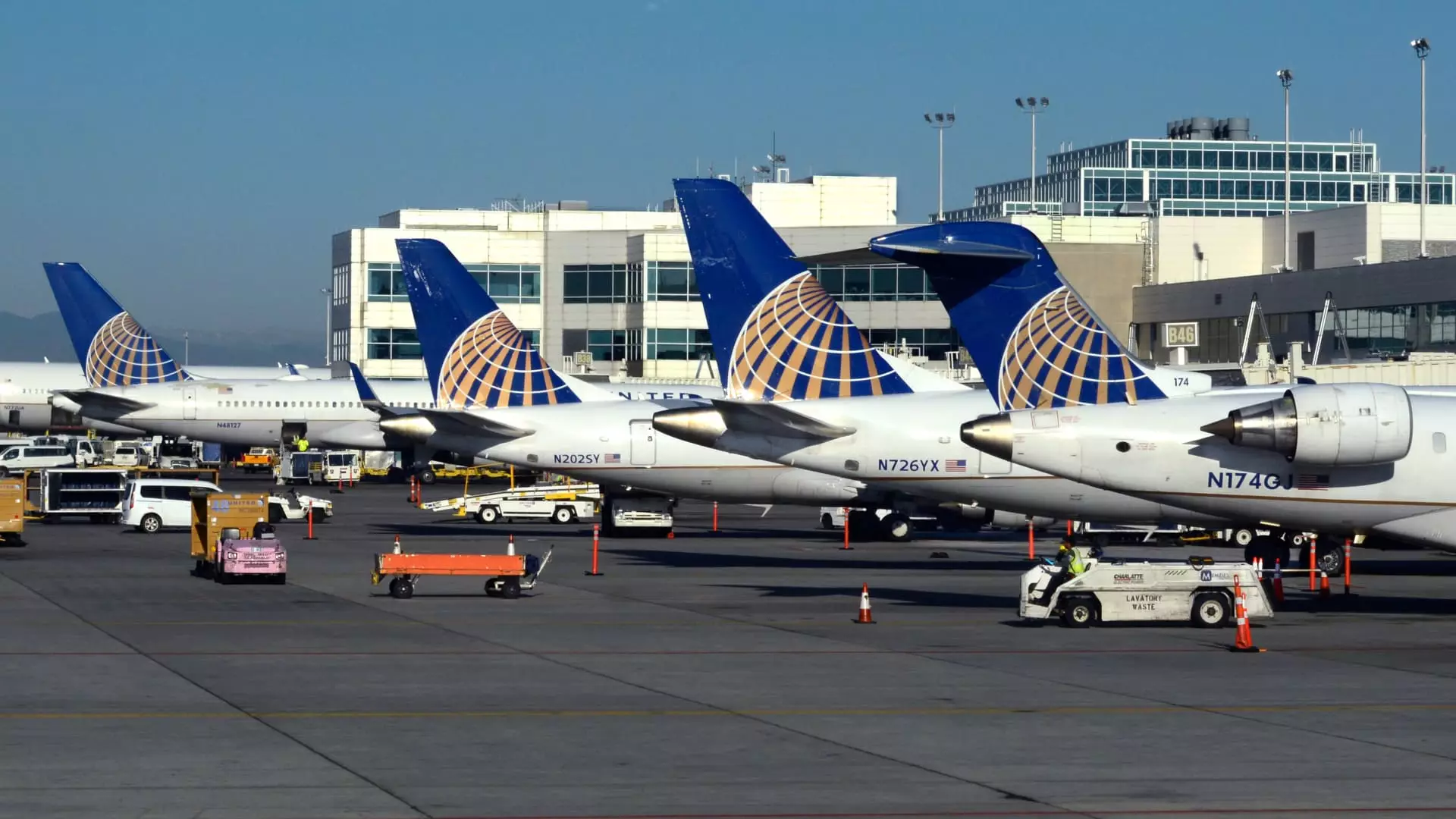United Airlines has taken a bold step in the travel industry by raising the fees associated with its annual airport lounge membership and co-branded credit cards. This news, set against the backdrop of a fiercely competitive travel market, sparks critical questions about how far airlines can push the envelope on costs before losing consumer loyalty. The airline gleefully touts new sign-up bonuses and enhanced benefits for cardholders, but beneath these surface-level attractions lies a deeper issue: the creeping escalation of travel expenses.
Consumer Trust on the Line
As Richard Nunn, the chief executive of United’s MileagePlus program, notes, the rationale behind these hikes is framed in terms of the added value being delivered. However, one must pause to consider whether customers truly perceive an increase in value commensurate with rising fees. The trend of airlines—once known for their low-cost services—escalating fees for everything from checked baggage to in-flight experiences illustrates a growing estrangement from consumer interests.
The crux of the problem lies in trust. Frequent travelers have come to expect certain perks, including complimentary lounge access and competitive credit card offerings. These changes feel more like a betrayal than an enhancement to services, as companies scramble to monetize loyalty programs which had previously served as a draw for customers. Indeed, the crumbling of trust could have long-lasting repercussions; the very notion of loyalty hinges on the perception of mutual benefit.
Market Saturation and Strategic Responses
Currently, the market is saturated with loyal travelers competing for limited airport lounge space. Airlines like United have responded with larger lounges while simultaneously raising entry thresholds and fees—a puzzling combination that might alienate their most devoted passengers. The reality is that as loyalty programs thrive, fundamental truths are ignored. In an environment where airlines continually elevate costs, what incentive remains for the consumer?
United’s admission of its expanded MileagePlus membership base reveals a broader issue: more members, amidst a stagnant engagement level. The airline’s expected boost in co-branded card sign-ups exhibits a notable disconnect; loyalty is not insured by mere monetary incentives like rideshare credits. Rather, it must be built on the foundational trust that once distinguished these airlines from budget carriers.
The Economics of Loyalty
Airlines have reaped tremendous financial gain from loyalty revenue streams, with United raking in $3.49 billion last year just from “other” revenues. This astonishing figure, albeit impressive, may signify a trend where revenue-generating mechanisms like credit cards eclipse core passenger-facing services. In doing so, could airlines undermine their value proposition? If they keep rolling out a suite of incremental benefits while simultaneously raising costs, customers may find the overall experience diminished. This is not merely a fiscal concern but a moral one, as brands wrestle with the balance of profit maximization against customer satisfaction.
United Airlines’ recent moves are emblematic of a broader shift in the airline industry—where rising fees and dwindling perks may lead to an eventual customer exodus. As travelers clock more miles, they deserve transparency and trust rather than inflated fees masked as valuable perks. The question remains whether United, and others like it, can find that critical balance before loyalty turns into mere apathy.

Leave a Reply